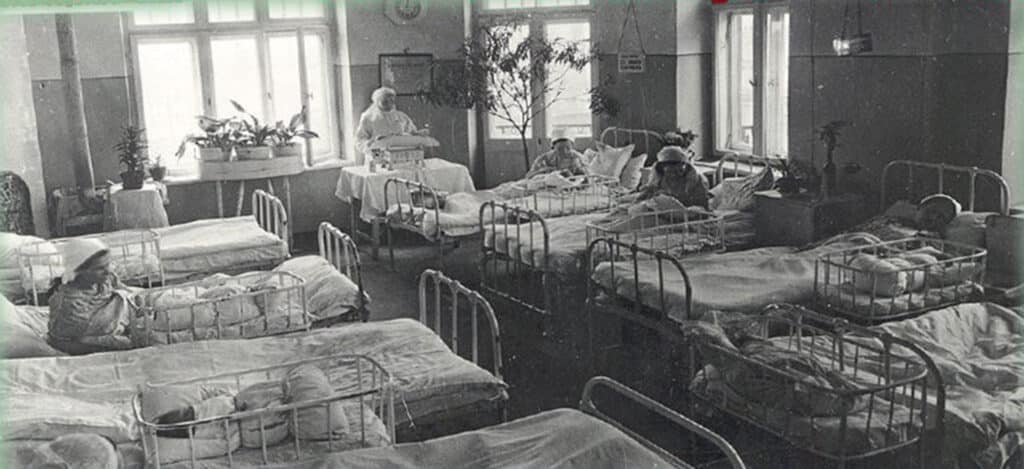
This was the third in a four-part series on Grossaktion Warsaw: Remembering 80 Years Later. Opening remarks were given by Dr. Hadas Shasha-Lavksy and the host for this program was Tali Nates, Founding Director of the Johannesburg Holocaust & Genocide Center. Guest speakers were Dr. Maria Ciesielska, Luc Albinksi and Dr. Michael Katz.
As rumors about deportation from the Warsaw ghetto spread, everyone began to sense that the end was near. The pressure on every person in the ghetto was extreme, with life and death hanging in the balance. To medical personnel, the issue was both professional and personal. What does a doctor do with his or her family? Will they be exempt? What does a physician do with his or her patients? Can we save lives at the Umschlagplatz? Medical ethics were even more challenged from this point. Doctors had to choose who would live and who would die. Based on years of archival research, Dr. Maria Ciesielska presented her findings from the most detailed study ever undertaken into the fate of more than 800 Jewish doctors who devoted themselves, in many cases until the day they died, to the care of the sick and the dying in the Ghetto.
Luc Albinski is a second-generation Holocaust survivor whose mother escaped the Warsaw Ghetto in 1942 and was hidden in an orphanage outside Warsaw for the remainder of the war. She married a Catholic and Luc was brought up as a Catholic, only learning about his Jewish origins in his early twenties. Since then, he has spent much time researching the fate of his Polish-Jewish grandmother, Dr. Halina Rotstein, a doctor in the Warsaw Ghetto, who decided to accompany her patients to the Treblinka death camp. He shared with the audience his personal story and how his journey led to the making of the film “Nobody Told Me”, about his mother, Wanda Albińska, and his grandmother, Dr. Rotstein.
Dr. Michael Katz was born in Poland in 1928. Experienced German occupation in Warsaw, Lwow, Krakow. He lost his whole family in 1942 in Lwow and then Belzec. Was imprisoned in the Janowska Camp, but escaped from it and obtained a birth certificate of a Roman Catholic and lived as such in Warsaw under that alias. Became a member of the Resistance. Fought in the Warsaw Uprising in 1944. Evacuated from Warsaw to Krakow and liberated there in January 1945 by the Soviet Army. Dr. Katz, who is a retired pediatrician, shared his insights as a Holocaust survivor and as a medical doctor. This program is in partnership with Classrooms Without Borders, Johannesburg Holocaust & Genocide Center, the Rabin Chair Forum at George Washington University, Moreshet Holocaust & Research Center, the Institute for the History of Polish Jewry at the University of Tel Aviv, the Polish Institute in Tel Aviv, and the Jewish Historical Institute in Warsaw.
This program is available on YouTube please click link below to view.
Watch Here